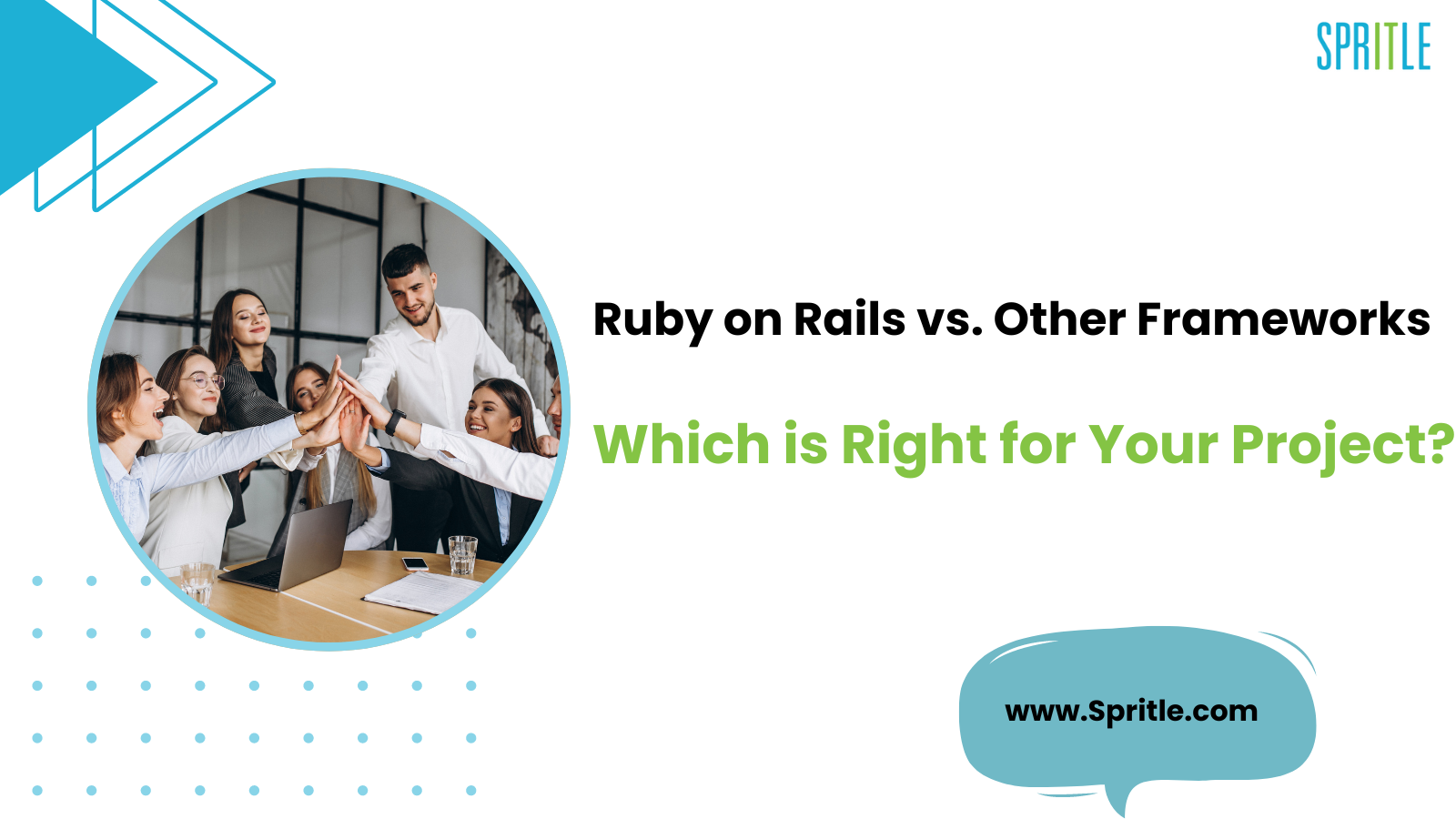Ruby on Rails vs. Other Frameworks: Which is Right for Your Project?
 Rohith Raghavan
Rohith Raghavan
Introduction:
When embarking on a web development project, one of the most critical decisions you’ll face is choosing the right framework. A framework serves as the foundation for your web application, and it greatly influences your project’s development speed, scalability, and overall success.
In this blog post, we’ll explore a common dilemma among developers and project managers: Ruby on Rails vs. other frameworks. We’ll break down the strengths and weaknesses of Ruby on Rails and compare it to some other popular frameworks to help you make an informed decision.
Understanding Ruby on Rails (Rails)
Ruby on Rails, often referred to simply as Rails, is an open-source web application framework that follows the Model-View-Controller (MVC) architectural pattern. It’s known for its elegance, developer-friendly conventions, and emphasis on productivity. Let’s delve into some of its key characteristics:
Rapid Development: Rails is renowned for its speed in developing web applications. Its convention-over-configuration approach and a wealth of built-in features can significantly reduce development time.
Scalability: Rails is scalable and has powered successful applications like Airbnb and GitHub. It can grow with your project’s needs.
Community Support: Rails boasts a vibrant community of developers, which means you can find extensive resources and solutions to common problems.
Security: Rails includes built-in security features, making it easier to build secure applications from the start.
Cost-Effective: Rails development services are often cost-effective, making it an excellent choice for startups and projects with limited budgets.
Now, let’s compare Ruby on Rails to some other popular web development frameworks:
1. Ruby on Rails vs. Django (Python)
Django, a Python-based framework, shares some similarities with Rails in terms of productivity and convention-over-configuration. Choosing between the two often comes down to your familiarity with the programming languages (Ruby vs. Python) and your project requirements. Django may be preferred for projects where Python’s capabilities are a better fit.
2. Ruby on Rails vs. Laravel (PHP)
Laravel is a PHP framework known for its elegant syntax and developer-friendly features. If you’re more comfortable with PHP or have specific PHP-related needs, Laravel might be a better choice. However, Rails’ community and rapid development advantages are still compelling.
3. Ruby on Rails vs. Express.js (Node.js)
Express.js, a framework for Node.js, is renowned for its speed and performance. If your project requires real-time features or is highly I/O-bound, Express.js might be more suitable. However, Rails offers a more structured and opinionated development process, which can be advantageous for certain projects.
Choosing the Right Framework for Your Project
Ultimately, the choice between Ruby on Rails and other frameworks depends on various factors:
Your Team’s Expertise: Consider the programming languages your team is most proficient in. A team comfortable with Ruby may find Rails more appealing.
Project Requirements: Analyze your project’s specific needs. Is it a real-time application, an e-commerce site, a content management system, or something else? Different frameworks excel in different areas.
Development Speed: If time-to-market is crucial, Rails’ rapid development capabilities might be the deciding factor.
Scalability: Assess your project’s expected growth. Rails is scalable, but you may need to consider future scaling challenges.
Budget: Your available budget will play a role in your framework decision. Rails’ cost-effectiveness can be a significant advantage.
In conclusion, the choice between Ruby on Rails and other frameworks is not one-size-fits-all. It hinges on your project’s unique characteristics and your team’s expertise. Ruby on Rails excels in many aspects, but it’s important to weigh the pros and cons in the context of your specific project.
By considering your project’s requirements, team capabilities, and long-term goals, you can make an informed decision that sets your project on the path to success. Remember that the best framework is the one that aligns with your project’s needs and goals.
Subscribe to my newsletter
Read articles from Rohith Raghavan directly inside your inbox. Subscribe to the newsletter, and don't miss out.
Written by
